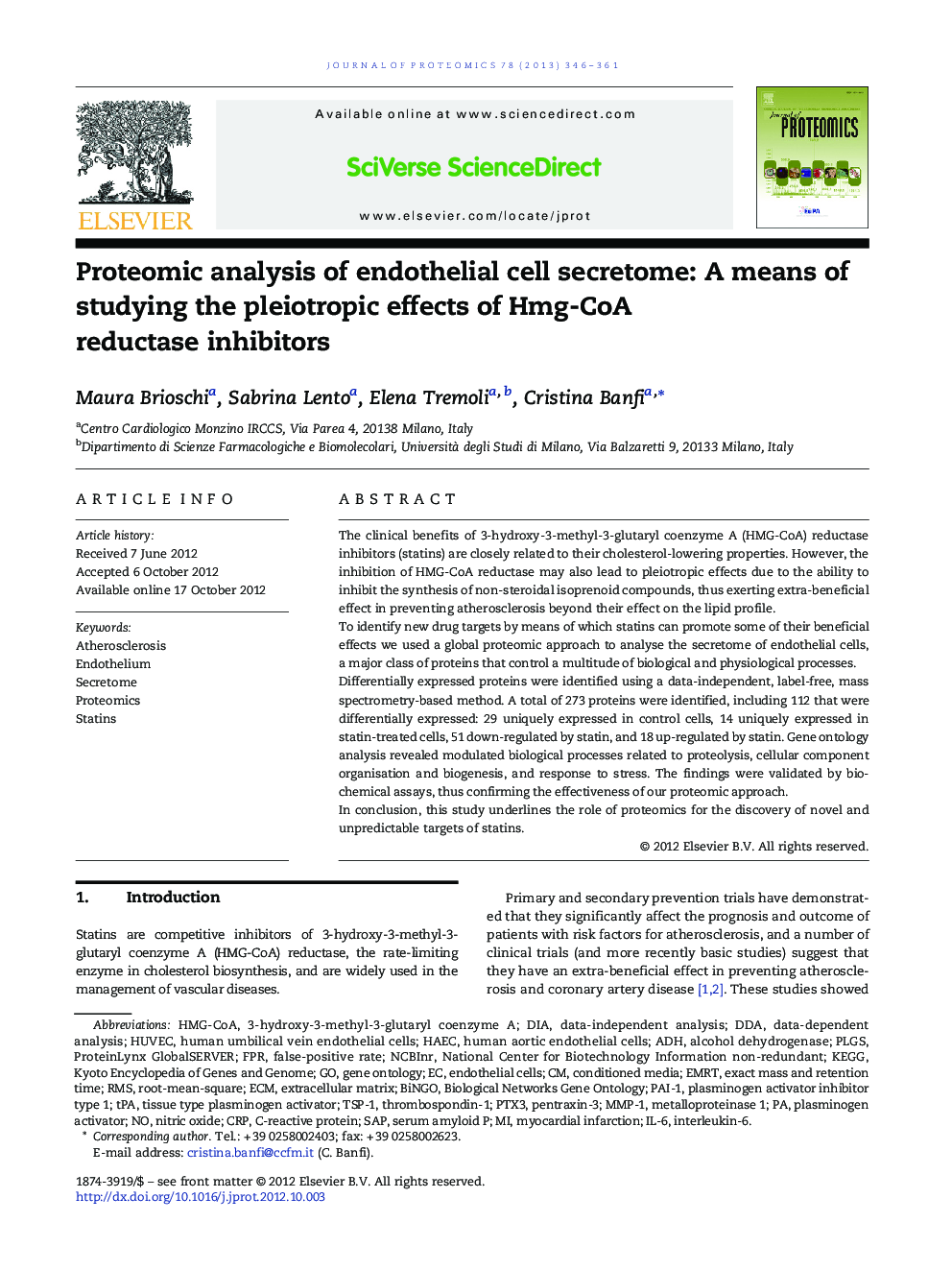| Article ID | Journal | Published Year | Pages | File Type |
|---|---|---|---|---|
| 1225589 | Journal of Proteomics | 2013 | 16 Pages |
The clinical benefits of 3-hydroxy-3-methyl-3-glutaryl coenzyme A (HMG-CoA) reductase inhibitors (statins) are closely related to their cholesterol-lowering properties. However, the inhibition of HMG-CoA reductase may also lead to pleiotropic effects due to the ability to inhibit the synthesis of non-steroidal isoprenoid compounds, thus exerting extra-beneficial effect in preventing atherosclerosis beyond their effect on the lipid profile.To identify new drug targets by means of which statins can promote some of their beneficial effects we used a global proteomic approach to analyse the secretome of endothelial cells, a major class of proteins that control a multitude of biological and physiological processes.Differentially expressed proteins were identified using a data-independent, label-free, mass spectrometry-based method. A total of 273 proteins were identified, including 112 that were differentially expressed: 29 uniquely expressed in control cells, 14 uniquely expressed in statin-treated cells, 51 down-regulated by statin, and 18 up-regulated by statin. Gene ontology analysis revealed modulated biological processes related to proteolysis, cellular component organisation and biogenesis, and response to stress. The findings were validated by biochemical assays, thus confirming the effectiveness of our proteomic approach.In conclusion, this study underlines the role of proteomics for the discovery of novel and unpredictable targets of statins.
Graphical abstractFigure optionsDownload full-size imageDownload high-quality image (125 K)Download as PowerPoint slideHighlights► An optimised workflow for the analysis of cell secretome is proposed. ► Label-free LC–MS allows both identification and quantification of secreted proteins. ► The secretome analysis leads to the discovery of novel unpredictable drug targets. ► Validation assays confirmed the regulation of the proteins identified by proteomics.
